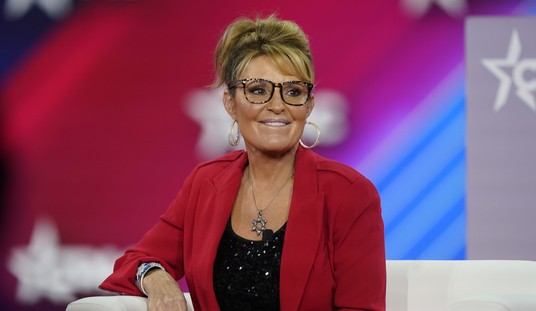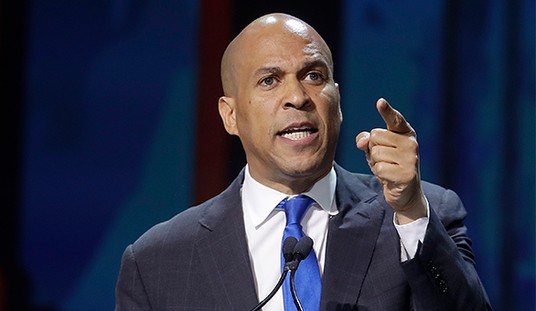I wish to my dear and fluffy Lord that I was using hyperbole, but I’m not. This is literally what the University of California, Santa Barbara was suggesting.
According to Fox News, UCSB’s student-run “SexInfo Online” consists of “sexperts” answering questions about various topics around sexuality. One of those topics involved children, and how they should be allowed to discover sexuality.
And when I say children, I mean that in the literal sense. According to Fox News, the site was attempting to encourage parents to allow children as young as four to touch each other’s genitals because that’s “perfectly normal.”
“The majority of sexual play between children takes place between the ages of 4 and 7,” the website states in a section titled “Childhood Sexuality,” accompanied by a photo of two little girls that appear to be kissing on a beach. “Children might display affection to their friends by hugging and kissing, or touching each other’s genitals, which is perfectly normal. Parents should not react in a negative way because children are just exploring.”
At this time, colleges are busy coming down hard on any male who dares express his sexuality in even the safest and most consensual of terms. A girl can give enthusiastic consent at the time of sexual intercourse, but then later regret it, and suddenly the male will find himself guilty of rape. I wish that were hyperbole as well, but it’s not.
However, this college was essentially encouraging children to touch each other with glee. They claimed this is not something the parents should step in to stop, but encourage and applaud.
I want to be clear. UCSB was encouraging parents to encourage their small children to disrobe and touch and explore each other’s genitals. The only time they say parents should step in is to tell the child that this should be done in private, and should stop it if the touching becomes non-consensual or hurtful.
Children are learning a lot around the age of four. They’re learning to read, write, and count. They’re learning social etiquette, and morals. They’re learning how to play with others and play correctly. What these students who are taking classes about sexuality are suggesting is that within these morals that you should teach your child is one that makes sexuality something so “natural” as to be no big deal when it happens.
This is not how the world works. It’s not how humans work. Sexuality isn’t all physical, which much of society tends to focus on. In fact, it’s vastly more emotional than we give sex credit for. According to the Heritage Foundation, sexually active youth tend to register far more feelings of depression than their counterparts who abstained.
Using results from the National Longitudinal Survey of Adolescent Health, conducted in 1996 for the National Institute of Child Health and Human Development and 17 other federal agencies, the Heritage study reveals that more than a quarter of teen girls who said they were sexually active also said they had been depressed “a lot of the time” or “most or all of the time” in the previous week, compared to 7.7 percent of girls who said they weren’t sexually active. More tellingly, 60.2 percent of girls who refrained from sex said they were “never or rarely” depressed, compared to just 36.8 percent of sexually active girls.
For boys, 8.3 percent of those who were sexually active reported problems with depression, compared to just 3.4 percent for those who weren’t.
The in-home survey (given with parental permission) of 6,500 people 14-17 years old also asked if they had attempted suicide during the past year. Girls who were sexually active were three times more likely to say they had attempted suicide than those who weren’t. Sexually active boys were nearly nine times more likely to have attempted suicide.
Yes, sex and curiosity about sex are absolutely “natural.” So is a rattlesnake’s venom. Encouraging children to literally engage in it at such a young age will only lead to emotional problems, undeserved attachment, endless letdowns, and eventually numbness. What UCSB was doing was encouraging emotional problems, not sexual wisdom.
I’m using the past-tense here because that part of the site has since been taken down. Apparently, someone with sense got wind of what was happening and ripped that gross and disturbing suggestion down post-haste.
The site being taken down doesn’t make me feel any better. The way sex is being thrust on our children earlier in earlier is becoming far more common.
Between strippers and drag queens reading kids stories at public libraries on the taxpayer’s dime, people selling prosthetic penises to children, and YouTube channels dedicated to teaching young children about queer sexuality, society has become far too accepting of forcing sexuality on children.
Being against it isn’t bigotry or intolerance, it’s common sense. We protect our children from these things at an early age for a reason. Sexuality is more than just genitals and sex acts. It’s emotions that can scar deeply and cause problems later in life. Emotional health is just as important as physical health, and we need to look after our children’s emotional health just as diligently.















Join the conversation as a VIP Member